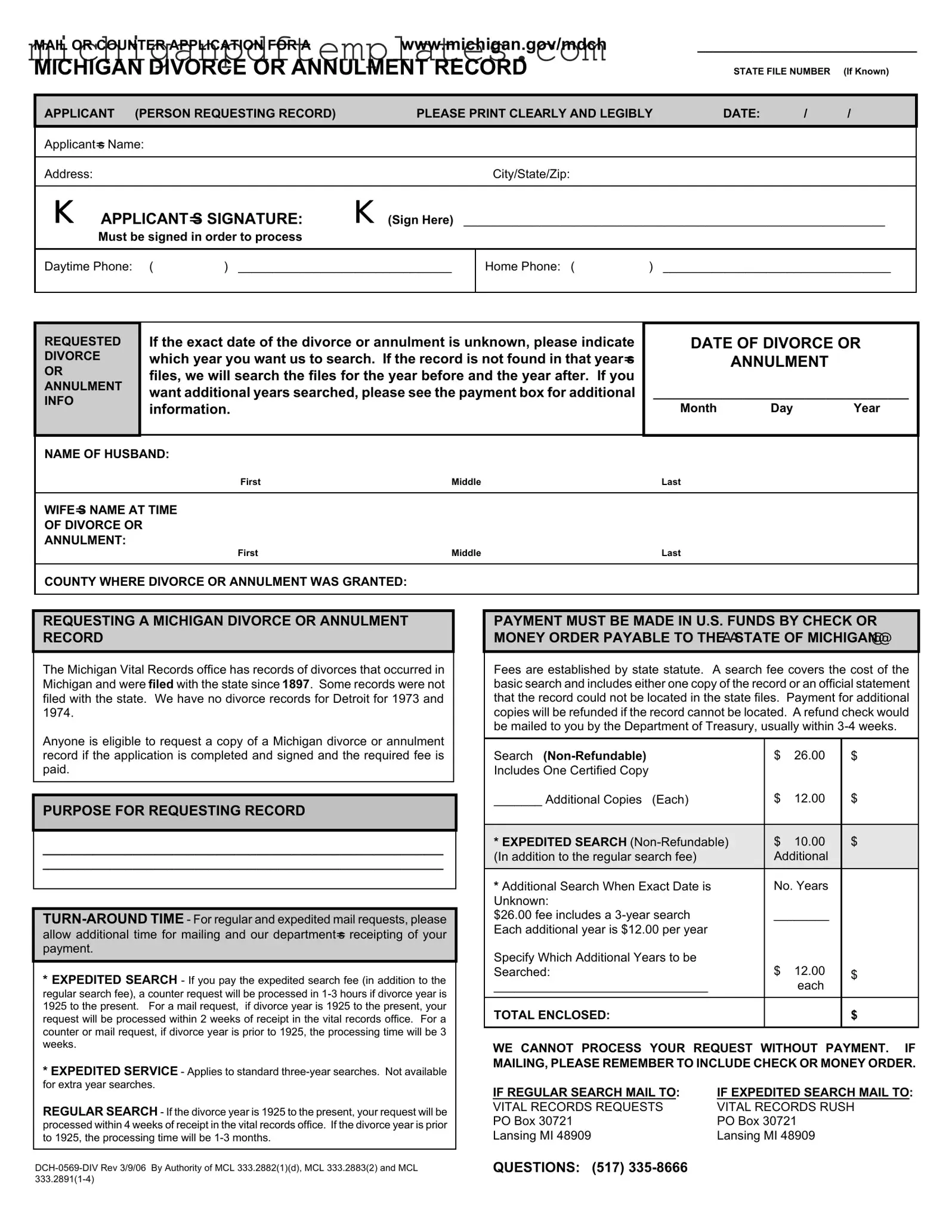Fill in Your Divorce Or Annulment Michigan Form
The Divorce or Annulment Michigan form is a vital document used to request records of divorces or annulments that occurred in Michigan since 1897. This form allows individuals to obtain necessary information about their marital status or to verify the details of a divorce or annulment. Completing this form accurately is essential for a smooth processing of your request; start by filling it out today by clicking the button below.
Get Your Form Now

Fill in Your Divorce Or Annulment Michigan Form
Get Your Form Now

Get Your Form Now
or
▼ PDF Form
Finish this form quickly and move on
Fill in and complete Divorce Or Annulment Michigan online quickly.